
Politics
07:21, 05-Nov-2017
Trump-Abe friendship faces big test during the Asia tour
CGTN
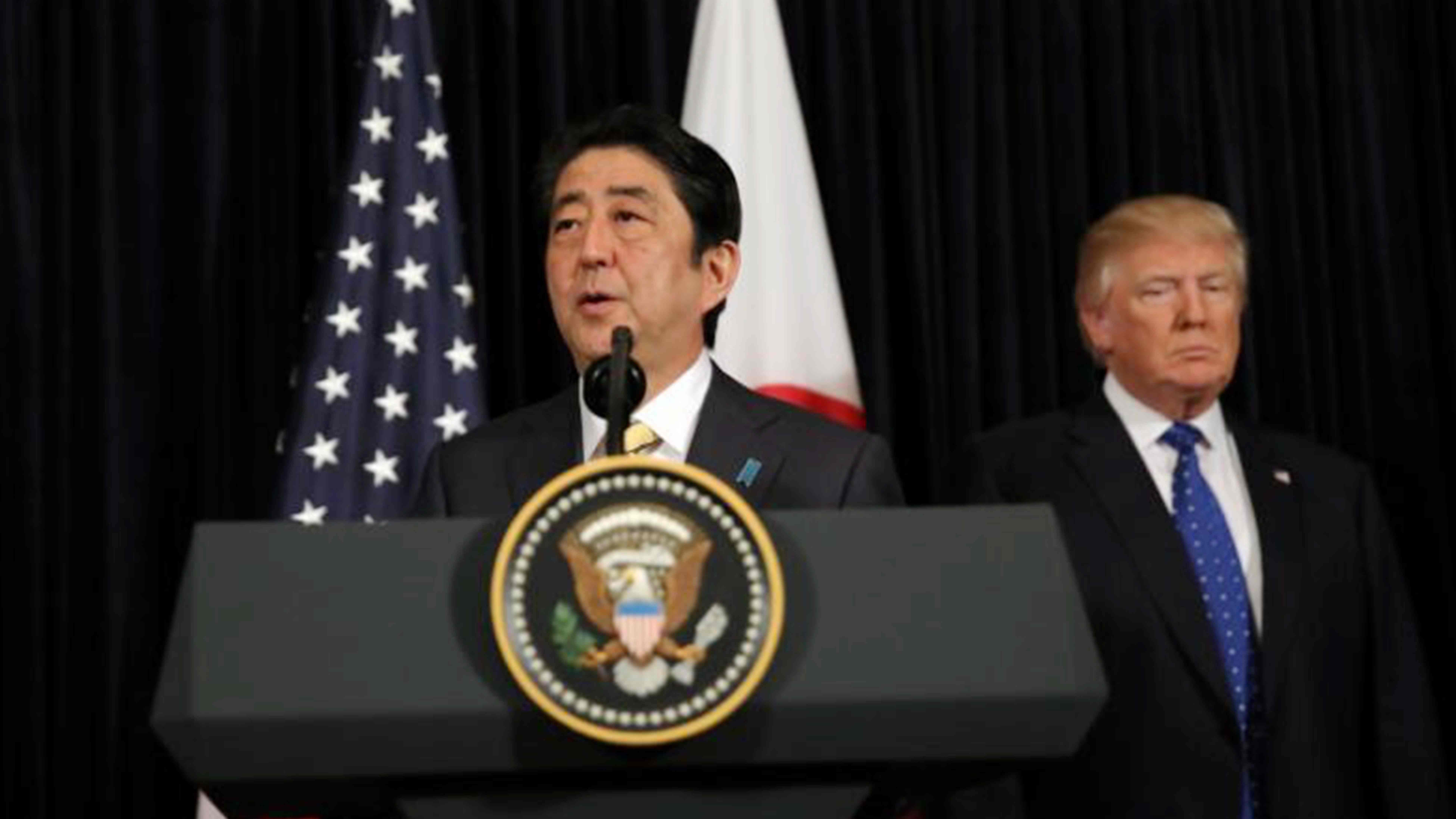
US President Donald Trump started his first tour of East Asia with a round of golf in Japan on Sunday, teeing off alongside Prime Minister Shinzo Abe.
The two leaders enjoy a strong personal relationship that goes beyond the longstanding bilateral partnership. They had a "great time" golfing at the Mar-a-Lago resort in Florida in February 2017, according to the US president. The leaders are expected play a few holes with Japanese pro Hideki Matsuyama when Trump arrives in Tokyo.
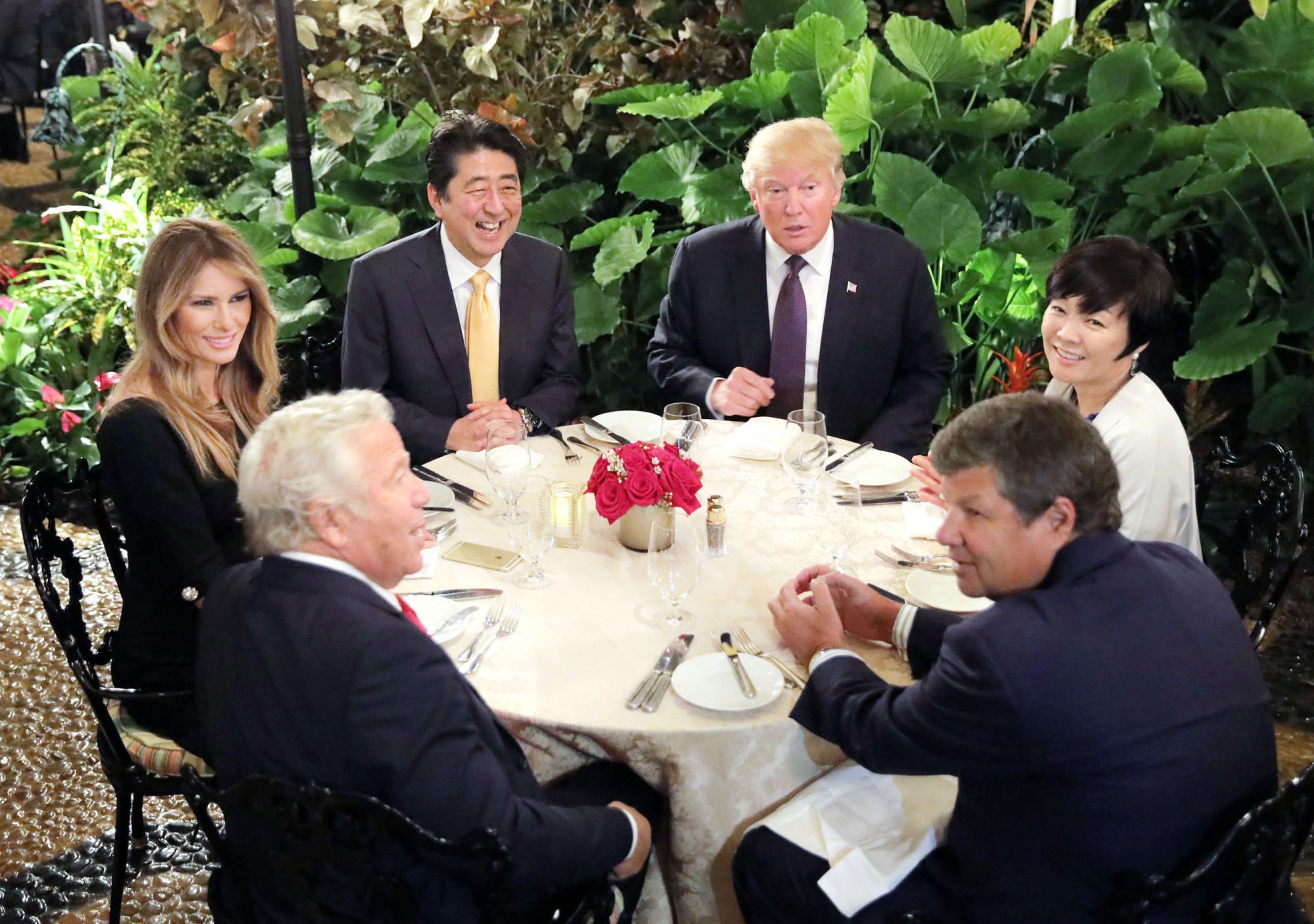
US President Donald Trump hosts Japanese Prime Minister Shinzo Abe and his wife Aki Abe for dinner at Mar-a-Lago, his resort in Palm Beach, Florida in February 2017. /Reuters Photo
US President Donald Trump hosts Japanese Prime Minister Shinzo Abe and his wife Aki Abe for dinner at Mar-a-Lago, his resort in Palm Beach, Florida in February 2017. /Reuters Photo
Trump and Abe have also become "phone buddies.” Since January, they have called one another 14 times, more often than Abe and former President Barack Obama in the latter's entire second term.
In an interview with Japanese newspaper Asahi last month, the US Ambassador to Japan William Hagerty said: "There is no better relationship than the one between Prime Minister Abe and President Trump, in the world today, among two world leaders.”
The handshakes and putts mask a series of tensions, however, most notably on trade relations.
Is the alliance as rosy as it appears?
The US-Japan alliance has been driven by the Trump-Abe personal relationship over recent months. Abe traveled to New York shortly after Trump’s election victory to hold talks with the president-elect in Trump Tower.
Of Trump's 13 tweets about Japan, six have referenced "wonderful couple" Shinzo and Akie Abe's stay in the president's "winter White House" – the Mar-a-Lago resort in Florida in February. They had met in person four times before Trump’s November trip.
However, trade was mentioned in only one of the 14 phone calls between Trump and Abe.
On his first day in office, Trump signed an executive order removing the US from the Trans-Pacific Partnership (TPP) and suggested the country would retreat from multinational trade agreements.
The TPP trade deal originally included the US, Japan, Mexico, Canada, Australia, New Zealand, Vietnam, Peru, Chile, Malaysia, Singapore, and Brunei. The deal was negotiated under the Obama administration, but never ratified by US Congress.
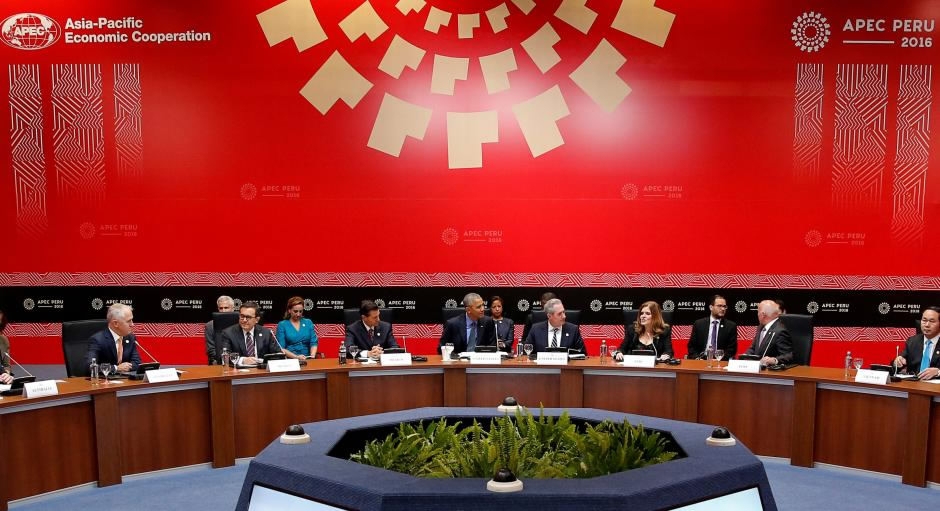
US President Barack Obama holds meeting with TPP leaders at the APEC Summit in Lima, Peru November 19, 2016. /Reuters Photo
US President Barack Obama holds meeting with TPP leaders at the APEC Summit in Lima, Peru November 19, 2016. /Reuters Photo
Despite Trump's withdrawal, Abe has been exploring options to revive the pact without the US — while holding out hope Trump can be persuaded to reconsider the US exit. Progress towards an 11-nation TPP is expected at the APEC meeting in Vietnam.
The US is pushing hard for a free trade agreement with Japan, but Tokyo has so far been resistant to the call.
According to Hagerty, the US-Japan trade deficit will also be on the agenda in Tokyo. Trump has criticized countries including Japan for enlarging America's trade deficit. In March, he ordered a country-by-country, product-by-product review of the causes of the deficit, in a bid to "set the stage for a great revival of American manufacturing.”
The move targeted Japan. In 2015, trade in goods and services between the two economies was worth nearly 268 billion US dollars. Last year, Japan's surplus in goods traded with the US stood at 69 billion US dollars. It makes Japan the second largest contributor following China to the US trade deficit.
Trade is an area where the buddies disagree. It’s unlikely to be at the forefront of discussions between Trump and Abe.
DPRK the glue?
Trump and Abe have frequently discussed international affairs, and the Democratic People's Republic of Korea (DPRK) has dominated the chats. Of the 14 phone calls, the DPRK cropped up in 12.
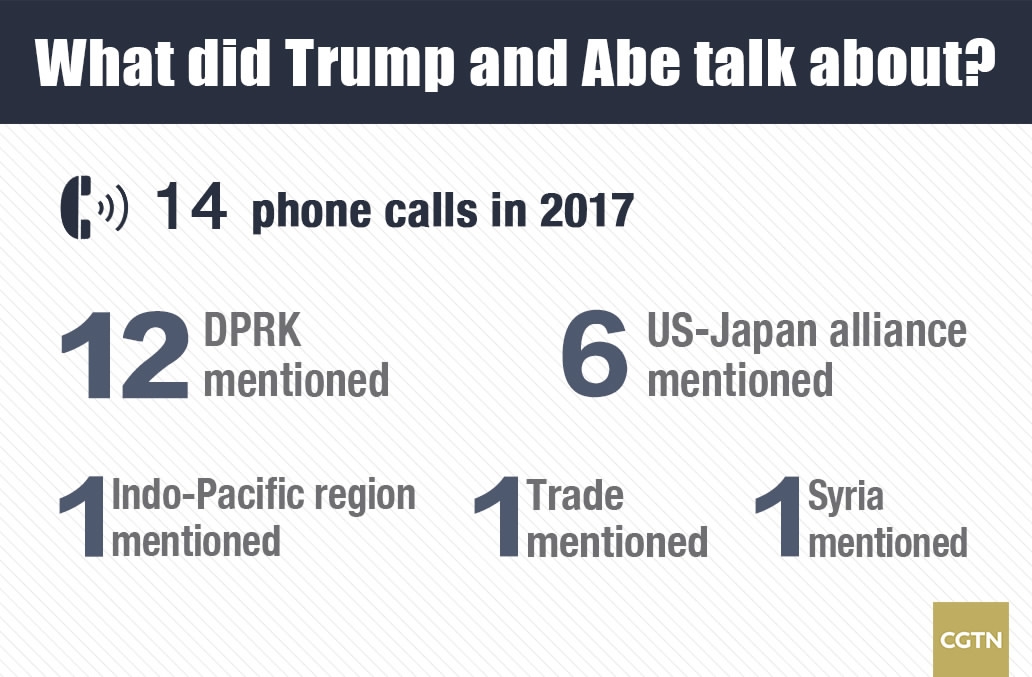
The leaders held a 40-minute phone conversation after the DPRK launched a missile that flew over Japan in August. Trump assured Abe that the US, as an ally, was 100 percent with Japan.
Trump phoned Abe twice on September 3, once before and once after Pyongyang conducted its sixth nuclear test.
Two days later, Trump tweeted that the US would sell Japan and South Korea a "substantially increased amount of highly sophisticated" military equipment, as the US and its allies sought to counter the threat from the DPRK.
Just days before Trump's arrival in Tokyo, two US strategic bombers conducted drills over South Korea. Meanwhile, three US aircraft carriers are in the Asia-Pacific, the first time such a potent show of force has been seen in the region in a decade.
Bilateral ties seem to have been pushed closer by the DPRK. But the shared target does not necessarily translate into an unbreakable future.
The China factor
China is a key player in the DPRK issue.
When asked about his agenda on the upcoming visit to Beijing in an interview with Fox News, Trump said: "You have to understand something – very important…We have a problem called North Korea (the DPRK)."
Trump said Chinese President Xi Jinping "has been pretty terrific" in cutting Pyongyang off from banking and oil systems.
China has stressed its support for the UN Security Council resolution on curbing the DPRK's missile tests and nuclear program and called for the issue to be resolved through dialogue and negotiation.
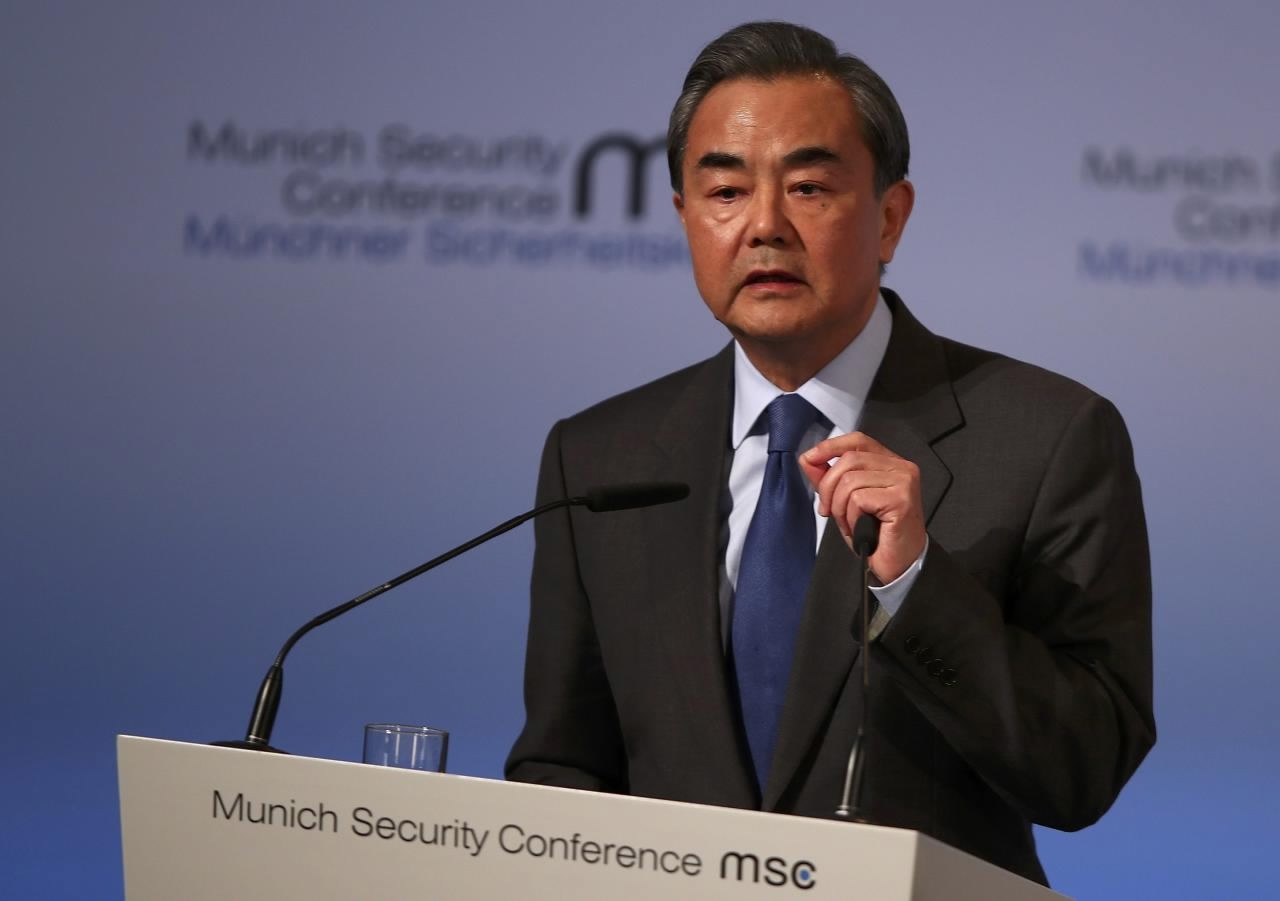
Chinese Foreign Minister Wang Yi speaks at the 53rd Munich Security Conference in Munich, Germany, February 17, 2017. /Reuters Photo
Chinese Foreign Minister Wang Yi speaks at the 53rd Munich Security Conference in Munich, Germany, February 17, 2017. /Reuters Photo
But China wants the US and South Korea to halt military drills to avoid the escalation of the tension. This is one reason why Foreign Minister Wang Yi has asserted that "China’s priority now is to flash the red light and apply the brake to both (the US and DPRK) trains."
Wang proposed a "double suspension" to defuse the Korean Peninsula crisis. "As a first step, the DPRK may suspend its nuclear and missile activities in exchange for the suspension of large-scale US-South Korea military exercises," he said.
While Trump is expected to press China on Pyongyang and reassure its allies in the region, Beijing is unlikely to move from the current strategy.

SITEMAP
Copyright © 2018 CGTN. Beijing ICP prepared NO.16065310-3
Copyright © 2018 CGTN. Beijing ICP prepared NO.16065310-3